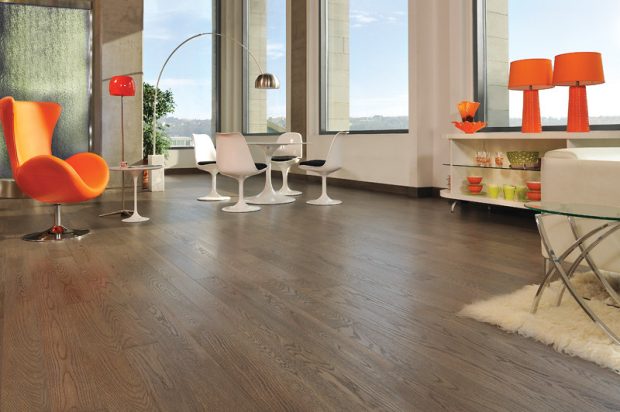Why Your Place Needs Heated Floors
Heated flooring is energy-efficient, easy to use and install, and provides total comfort throughout your home. You can install heated floors in certain rooms or everywhere as it can go between the subfloor and any type of main flooring whether carpet, tile, or wood. Here’s why your need heated floors in your place.
Energy Savings


Installing heated floors in your home is a great way to save energy from traditional forced-air heating systems. Heated floors evenly distribute heat throughout your home. Without the presence of drafts, the ambient temperature of a room can be lower while providing the same level of comfort and warmth. Homeowners with older or drafty homes have to turn their forced air systems up really high to achieve a comfortable room temperature. Heated floors allow you to set your desired temperature and let the system do the rest.
Total Comfort
Getting out of bed to ice-cold floors on a winter morning is the worst. Instead of shocking yourself awake with freezing feet, enjoy a cozy, comfortable morning wakeup. Walk into the kitchen to make your morning tea or coffee without having to put on socks or slippers.
Your floors cover every square foot of your home and so will warmth. Winter months with cold outside temperatures can be tough for a traditional heating and duct system to keep up with. Many homeowners have to deal with pockets of cold and warmth throughout rooms depending on where the registers are located.
Easy Upkeep and Installation
Heating ducts must be regularly cleaned to make sure warm air flows effortlessly throughout your home. If the ducts aren’t regularly cleaned, they will blow dust and dirt throughout your home aggravating allergies and even posing a fire hazard. Heated floors don’t require regular maintenance to keep your home warm. Heated flooring is achieved using hot water pipes or electric wires running under the floor, so there’s no potential for a clogged system or air leaks. Most heated floor systems are expected to last maintenance-free for at least 20 years.
Electric heat flooring systems come in rolls with the wiring running through the membrane that goes between the subfloor and the main floor. These are easy to install as you can simply roll out the membrane and cut it according to the dimensions and shape of the room. Other floor heating systems like loose cable heated floors can be a bit harder to install.
Some homes can be primarily heated using heated floors, but others will need another heat source in addition to the radiant heat on the floors. Even if heated flooring can’t be your home’s primary heat source, it’ll still cut back on the cost and energy use of central, forced-air heating.
If you’re planning to replace some of the flooring in your home, perhaps in a kitchen or bathroom remodel, consider adding heated floors to one room at a time. Electric radiant heat is easy to install in stages to save time and money where you can instead of having to replace all the floors at once.